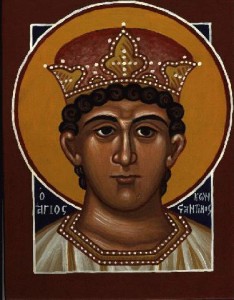There is some excitement in some quarters over the question of whether the United Reformed Churches confess the revised or unrevised version of the Belgic Confession. There is no evidence from the minutes of the URCs, of which I’m aware, that speaks . . . Continue reading →
constantine
Constantine’s Complexity
Constantine lived his entire life within the imperial court, which he saw as the central institution of Roman life. He believed that the emperor’s job was to defend the empire from external foes while creating a more just and ordered society for . . . Continue reading →
The Constantinian Turn Was Definitive
The conversion of Constantine marks a watershed in the patristic period. In the second and third centuries the Church was a relatively private community, suffering from time to time the threats and the actuality of imperial persecution and looking for the end . . . Continue reading →
Reformation Day, The Trinity, And The Culture War
Some objected to the critics of the Federal Vision that the social crisis is too great that to be arguing about the Federal Vision. That objection has resurface in recent days in the wake of a social media post in which a prominent member of the Young, Restless, and Reformed Movement and a Baptist theologian has argued, “The Father is the Father because he sends the Son. The Son is the Son because he submits to the Father’s will. The Spirit is the Spirit because the Father and the Son send Him. There is no Trinity without the order of authority and submission” (emphasis original). As one might imagine, this line of reasoning has prompted a considerable response. In response to the critics, some have re-stated the same argument made by the Federal Visionists and their enablers in 2008: “Are we really going to start arguing about ESS again? With all the other stuff going on in the world, this is the battle some of you want to fight? Again? I seriously do not understand some of you. Like, at all.” Continue reading →
St. Nicholas And The Account Of Constantine
Though we don’t have the full book, we have a chapter from the oldest known biography of Nicholas. It is called Stratelatis (Greek for Military Generals), and it was written sometime around 400 AD. This chapter recounts two stories about Nicholas. In . . . Continue reading →

